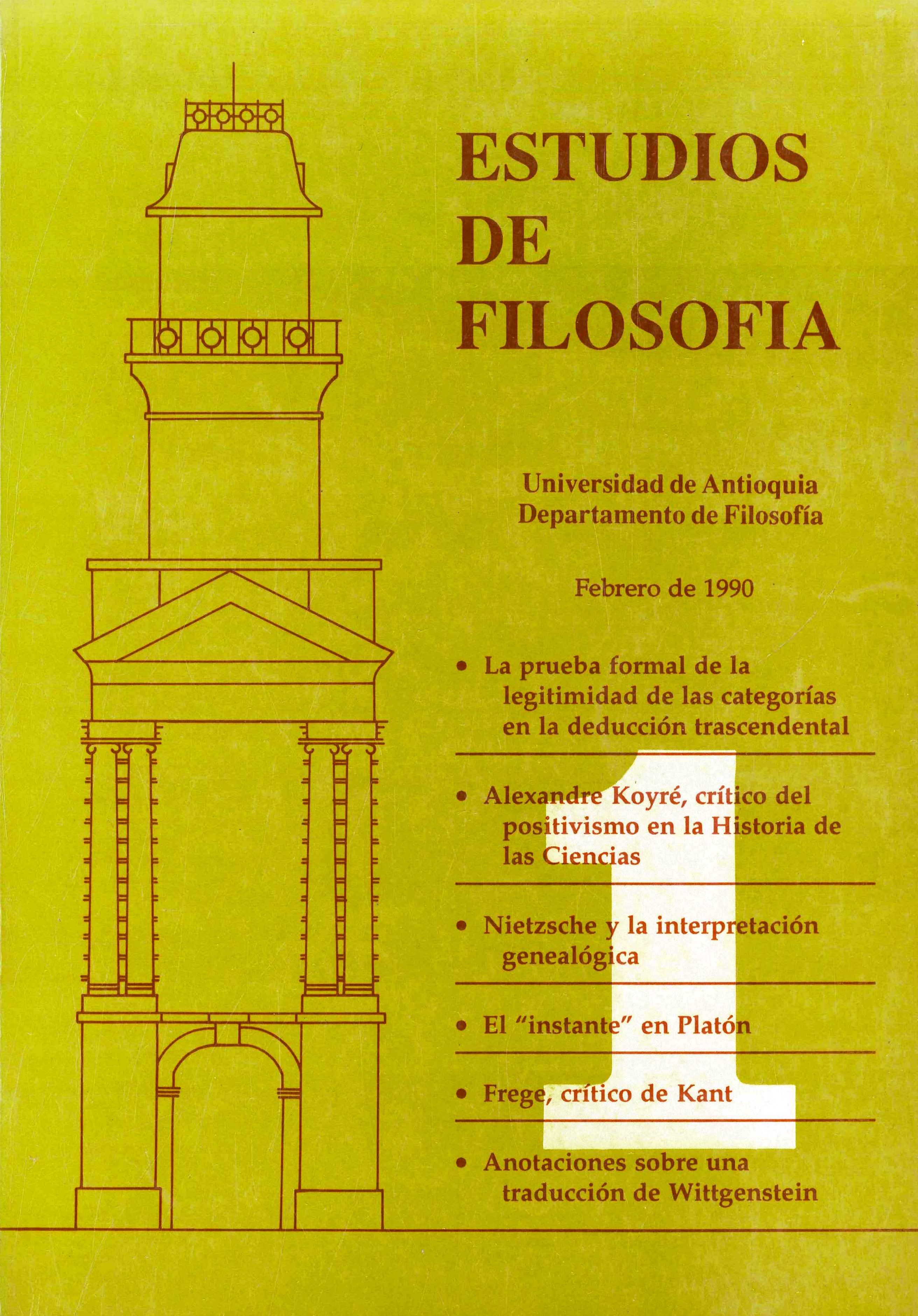The formal demonstration of the legimaticy of the categories in the Trascendental Deduction (Edition B)
DOI:
https://doi.org/10.17533/udea.ef.339723Keywords:
Kant, Transcendental Deduction, pure concepts of understandingAbstract
The most important and most widely discussed intetpretation of Kant in recent years has been "Die Beweisstruktur von Kants transzendentaler Deduktion", by Dieter Henrich, appearing in PRAUSS, Gerold. Hrsg.; Kant. Zur Deutung seiner Theorie von Erkennen und Handeln. Köln, 1973, p. 90-104. Considered from a juridical point of view, deduction gives a proof of the origin of pure knowledge and shows the scope and limits of its pretensions to legitimacy. Transcendental deduction sets as its goal demonstrating that there
is an irrestricted use of the categories in determining a given multiplicity. Henrich concentrates on the proof of the validity of the pure concepts of understanding and its consequent application. The innovation, according to Henrich, consists in talking, not about two proofs -as it has been traditional- but only about one proof having two steps, placed in different passages of the second redaction (B). The first one exposes the restriction of validity (15 - 21) whereas the second one refers to the overcoming of this restriction (26). The first passage shows that all intuitions having unity are under tbe domain of the categories (20). But something essential in the first part of deduction B is still missing for its complete fulfillment. The restriction is overcome in 26, with the thesis of the unity of the formal intuitions of space and time. The present article attempts a detailed analysis of the two steps in the proof proposed in Henrich's reconstruction, in order to question the suppositions under which the proof of legitimacy can go into effect, together with the ulterior application of the pure concepts of understanding
Downloads
Downloads
Published
How to Cite
Issue
Section
Categories
License
Copyright (c) 2019 Carlos Másmela Arroyave

This work is licensed under a Creative Commons Attribution-NonCommercial-ShareAlike 4.0 International License.
Authors who publish with this journal agree to the following terms:
1. The Author retains copyright in the Work, where the term "Work" shall include all digital objects that may result in subsequent electronic publication or distribution.
2. Upon acceptance of the Work, the author shall grant to the Publisher the right of first publication of the Work.
3. The Author shall grant to the Publisher a nonexclusive perpetual right and license to publish, archive, and make accessible the Work in whole or in part in all forms of media now or hereafter known under a Creative Commons Attribution-NoCommercia-ShareAlike (CC BY-NC-SA 4.0), or its equivalent, which, for the avoidance of doubt, allows others to copy, distribute, and transmit the Work under the following conditions: (a) Attribution: Other users must attribute the Work in the manner specified by the author as indicated on the journal Web site;(b) Noncommercial: Other users (including Publisher) may not use this Work for commercial purposes;
4. The Author is able to enter into separate, additional contractual arrangements for the nonexclusive distribution of the journal's published version of the Work (e.g., post it to an institutional repository or publish it in a book), as long as there is provided in the document an acknowledgement of its initial publication in this journal;
5. Authors are permitted, and Estudios de Filosofía promotes, to post online the preprint manuscript of the Work in institutional repositories or on their Websites prior to and during the submission process, as it can lead to productive exchanges, as well as earlier and greater citation of published work (see The Effect of Open Access). Any such posting made before acceptance and publication of the Work is expected be updated upon publication to include a reference to the Estudios de Filosofía's assigned URL to the Article and its final published version in Estudios de Filosofía.















